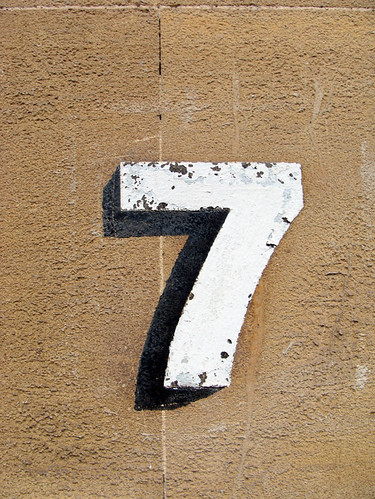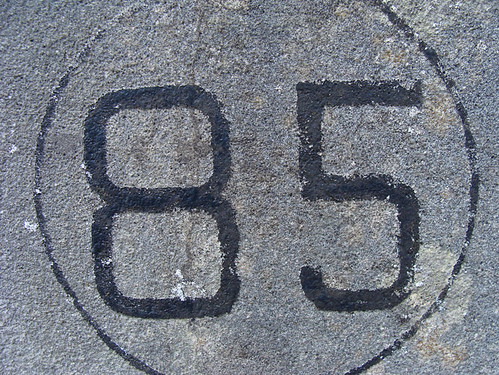For the last few years, I've been taking photographs of house numbers and I've just released these photos under a Creative Commons license. So if you have a need for some images of beautiful numbers, please check them out.
Giesela Birgit over on my Facebook group asked me how Creative Commons works. I realised that other people might be confused about it, so here's a quick explanation.
What is Creative Commons?
Creative Commons is a way of licensing your creative work in a more adaptable way than traditional copyright. It replaces 'all rights reserved' with a more flexible 'some rights reserved' model that recognises that the basis of a free, open internet is sharing.
Creative Commons offers six different licenses, which allow you to control the way your work is used. All Creative Commons licenses require that you, the creator, are credited so people can't take your work and pass it off as their own.
If I use it on one thing, will all my work be Creative Commons?
No, licenses are specific to that particular work, not your entire body of work.
I don't use Creative Commons for all my work. I retain full traditional copyright on all images of my art, any photographs I might want to sell in the future and all my writing. If you scroll down this blog you'll notice that I have a copyright notice that explains how people can use my work and when they need to ask for permission. As far as I'm aware, most people respect it. I also further protect my work by only releasing my images at 72dpi, which is not high enough for good print quality.
Is Creative Commons legal?
Yes. All Creative Commons licenses are an extension of traditional copyright and they have a 'Legal Code layer' written in lawyer language. Of course, that doesn't mean that it won't be challenged in court and there have been a couple of court cases about Creative Commons but there are even more court cases based on traditional copyright.
Won't people steal my stuff?
They might but that's a risk you take whenever you release any kind of creative work in public. Personally I only release stuff under Creative Commons that I'm not particularly bothered about and I don't worry about what happens to it.
If it bothers you, traditional copyright might be a better choice but be aware that dishonest people aren't bothered about any kind of copyright and all you're doing is stopping the honest people from disseminating and sharing your work.
Can I take public domain work and make it Creative Commons?
No, definitely not. You should only license works that you have created. The Creative Commons website states:
Creative Commons licenses should not be applied to works in the public domain. Our licenses are intended for works protected by copyright only.
Why I use Creative Commons
I currently have 410 images available for other people to use.
I take a lot of documentary-style photographs and I'm not very emotionally attached to them. Last year I decided to make these photographs available under a Creative Commons license because I'm a big fan of internet sharing, the concept of 'free' and enabling other people's creativity. I've benefited from using other people's images on my blog and I wanted to return the favour. It's a gift. It's also a strategic way to get more people to visit my Flickr account, which could lead to more people seeing my art.
I use the least restrictive license for my Creative Commons collection:
"This license lets others distribute, remix, tweak, and build upon your work, even commercially, as long as they credit you for the original creation."
So someone could take one of my images and use it as the basis of an artwork or add it to a video, a blog post or a Powerpoint lecture. They could change the colour, flip it around, add it to a collage, even use it as the basis of a commercial work (although all my images are only 72dpi, so it wouldn't be great for printing). The only thing they have to do is credit me.
I chose the least restrictive license because I wanted my images to appear in awesome WordPress plugins like Photo Dropper.
Further resources
If you have other questions, read the Creative Commons FAQ or check out the Creative Commons entry on Wikipedia (which incidentally, also uses a Creative Commons license).
Disclaimer:
I am not an expert in this stuff. If you have serious copyright questions about protecting your creative work, please consult a lawyer.
Get more help
If you'd like more information about building your online presence, check out the free resources section.
I am also available for online consulting if you need one-on-one help.


